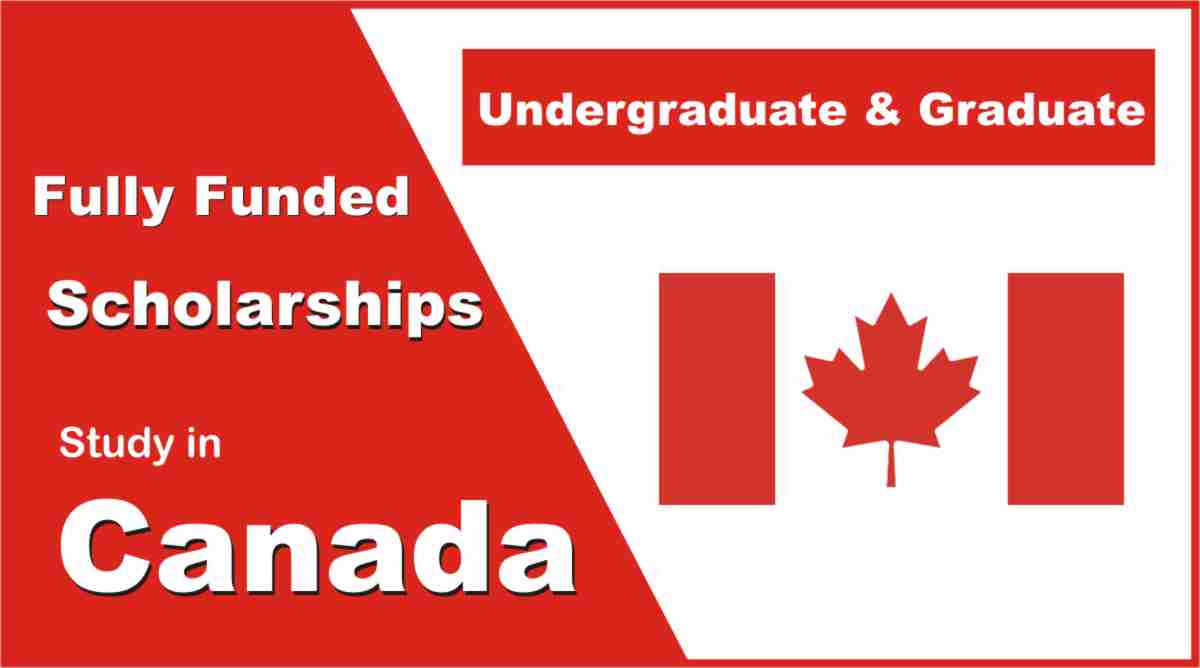Studying abroad is a transformative journey, offering international students unparalleled opportunities to gain world-class education, immerse in diverse cultures, and build global careers. Whether you dream of attending Oxford, exploring tech hubs in Silicon Valley, or mastering a new language in Tokyo, studying abroad can shape your future. This comprehensive guide covers every aspect of the study abroad experience—from choosing a destination to securing visas, finding affordable housing, and thriving as an international student. Packed with practical advice, student stories, and vibrant visuals, this guide is your roadmap to success as of April 26, 2025.
Why Study Abroad?
Studying abroad is more than an academic pursuit—it’s a life-changing adventure. Here’s why it’s worth it:
-
Academic Excellence: Access top-ranked universities and innovative programs.
-
Cultural Immersion: Experience new traditions, languages, and perspectives.
-
Career Boost: Gain global skills like adaptability and intercultural communication.
-
Personal Growth: Build independence, resilience, and lifelong friendships.
-
Global Networking: Connect with peers, professors, and professionals worldwide.
Step-by-Step Guide to Studying Abroad
Navigating the study abroad process requires careful planning. Follow these steps to make your journey seamless:
Step 1: Define Your Goals
-
Academic Goals: What field do you want to study? (e.g., engineering, business, arts).
-
Destination Preferences: Urban hubs (e.g., London) or serene settings (e.g., New Zealand)?
-
Duration: Short-term exchange (1–6 months), semester abroad, or full degree (2–4 years)?
-
Budget: Consider tuition, living costs, and scholarships.
-
Career Aspirations: Choose countries with strong job markets or post-study work options.
Tip: Write a list of priorities (e.g., affordability, language, career prospects) to narrow down options.
Step 2: Choose the Right Destination
Top study abroad destinations offer unique strengths. Here are five standout countries:
-
United States:
-
Why?: Home to Harvard, MIT, and diverse programs.
-
Top Universities: Stanford, UC Berkeley.
-
Costs: Tuition $20,000–$70,000/year; living $10,000–$20,000/year.
-
Scholarships: Fulbright, university grants.
-
-
United Kingdom:
-
Why?: Prestigious universities, short degrees (3 years for bachelor’s).
-
Top Universities: Oxford, Cambridge, UCL.
-
Costs: Tuition $10,000–$38,000/year; living $9,000–$15,000/year.
-
Scholarships: Chevening, Commonwealth.
-
-
Canada:
-
Why?: Affordable, safe, and inclusive.
-
Top Universities: University of Toronto, McGill.
-
Costs: Tuition $7,000–$30,000/year; living $8,000–$15,000/year.
-
Scholarships: Vanier Canada Graduate Scholarships.
-
-
Australia:
-
Why?: High-quality education, vibrant lifestyle.
-
Top Universities: University of Melbourne, ANU.
-
Costs: Tuition $15,000–$35,000/year; living $10,000–$18,000/year.
-
Scholarships: Australia Awards.
-
-
Germany:
-
Why?: Free/low-cost tuition, strong STEM programs.
-
Top Universities: TU Munich, Heidelberg.
-
Costs: Tuition $0–$3,000/year; living $8,000–$12,000/year.
-
Scholarships: DAAD.
-
Tip: Use QS World University Rankings or www.studyportals.com to compare destinations and programs.
Step 3: Explore Study Abroad Programs
Choose a program that aligns with your goals:
-
Exchange Programs: Study at a partner university for 1–2 semesters, transferring credits home.
-
Direct Enrollment: Join a foreign university for a semester or full degree.
-
Third-Party Programs: Structured experiences via providers like CIEE or IES Abroad.
-
Faculty-Led Programs: Short-term (1–8 weeks), often summer or winter, led by your professors.
-
Full-Degree Programs: Pursue a bachelor’s, master’s, or PhD abroad.
-
Internship/Work-Study: Combine academics with professional experience.
Resources: www.goabroad.com, university study abroad offices.
Step 4: Research Scholarships and Funding
Studying abroad can be costly, but funding options make it accessible:
-
Scholarships:
-
Global: Fulbright (USA), Erasmus Mundus (Europe), Chevening (UK).
-
Country-Specific: Australia Awards, DAAD (Germany), MEXT (Japan).
-
University-Specific: Harvard Financial Aid, Lester B. Pearson (Canada).
-
-
Grants: Aga Khan Foundation, Rotary Foundation.
-
Financial Aid: Check if your home university extends aid for exchanges.
-
Part-Time Work: Many countries allow 20 hours/week (e.g., Canada, UK, Australia).
Costs by Country:
-
Germany: $8,000–$12,000/year (living, minimal tuition).
-
USA: $30,000–$90,000/year (tuition + living).
-
Malaysia: $8,000–$20,000/year (tuition + living).
Tip: Apply to 5–10 scholarships to increase chances. Use www.scholarships.com.
Step 5: Apply to Programs and Universities
-
Documents:
-
Transcripts and academic records.
-
Standardized tests (e.g., SAT/ACT for undergrad, GRE/GMAT for grad, TOEFL/IELTS for English).
-
Recommendation letters (2–3 from professors or employers).
-
Personal statement/essay outlining goals and motivations.
-
Resume/CV for graduate or internship programs.
-
Passport copy.
-
-
Application Platforms:
-
USA: Common App, university portals.
-
UK: UCAS.
-
Others: Direct university applications or third-party providers.
-
-
Deadlines: 6–12 months before program start (e.g., November for UK, January for USA).
Tip: Tailor essays to each program’s mission and proofread carefully.
Step 6: Secure a Student Visa
-
Common Visas:
-
USA: F-1 Visa ($510, SEVIS fee included).
-
UK: Student Visa (£490).
-
Canada: Study Permit (CAD 150).
-
Australia: Subclass 500 (AUD 1,445).
-
Germany: Student Visa (€75–100).
-
-
Requirements:
-
University acceptance letter.
-
Proof of funds (e.g., bank statements).
-
Valid passport (6+ months validity).
-
Health insurance (mandatory in most countries).
-
Visa interview (for some, e.g., USA).
-
-
Process: Apply via embassy websites or platforms like www.atlys.com. Start 3–6 months early.
Tip: Check visa work rights—many allow part-time work (e.g., 20 hours/week in Canada).
Step 7: Find Affordable Housing
-
Options:
-
University Dorms: $5,000–$15,000/year, close to campus.
-
Shared Apartments: $300–$1,500/month, budget-friendly with roommates.
-
Homestays: $400–$1,000/month, includes meals and cultural immersion.
-
Private Rentals: $800–$2,500/month, more privacy but costly.
-
-
Resources:
-
University housing portals.
-
www.student.com, www.housinganywhere.com.
-
Local sites: www.wg-gesucht.de (Germany), www.rightmove.co.uk (UK).
-
-
Tips:
-
Book 6–12 months early.
-
Verify listings to avoid scams.
-
Choose locations near campus for convenience.
-
Step 8: Prepare for Departure
-
Health and Insurance: Purchase mandatory health insurance (e.g., $1,000–$3,000/year in USA, NHS surcharge in UK).
-
Flights: Book 1–2 months early via www.skyscanner.com for deals.
-
Packing: Bring essentials (documents, clothes, adapters); check baggage allowances.
-
Orientation: Attend university or program pre-departure sessions.
-
Budgeting: Plan for initial costs (deposit, first month’s rent, groceries).
Tip: Join student groups on X or Facebook (e.g., “International Students in [City]”) to connect before arrival.
Step 9: Thrive Abroad
-
Academics: Adapt to new teaching styles; use tutoring or study groups.
-
Social Life: Join clubs, attend cultural events, and travel visa-free countries during breaks (e.g., Schengen Area for EU-based students).
-
Work Opportunities: Explore part-time jobs (e.g., barista, tutoring) or internships to gain experience.
-
Health and Safety: Register with local healthcare systems and stay aware of surroundings.
Tip: Document your journey—photos, journals, or blogs—to share with future students.
Post-Study Opportunities
Many countries offer work visas to retain international graduates:
-
Canada: Post-Graduation Work Permit (PGWP, up to 3 years).
-
Australia: Temporary Graduate Visa (Subclass 485, 2–4 years).
-
UK: Graduate Route (2 years).
-
Germany: 18-month job search visa.
-
New Zealand: Post-Study Work Visa (1–3 years).
Tip: Start job hunting during your final semester using LinkedIn or university career services.
A Student’s Story: Linh from Vietnam
Linh, a Chevening Scholar at the University of Edinburgh, shares: “Studying abroad was daunting at first—visas, housing, costs—but the process became manageable with planning. I applied for scholarships early, secured a dorm through my university, and worked part-time as a library assistant. The UK’s cultural diversity and academic rigor transformed my perspective. I’m now working in London on the Graduate Route visa, building my career in sustainable development.”
Challenges and How to Overcome Them
-
High Costs: Apply for scholarships, choose affordable countries (e.g., Germany), or work part-time.
-
Visa Delays: Apply early and ensure all documents are complete.
-
Homesickness: Join student communities and stay connected with family via video calls.
-
Cultural Adjustment: Attend orientations, learn basic local phrases, and embrace differences.
-
Academic Demands: Use university resources like libraries, tutors, and writing centers.
Frequently Asked Questions (FAQs)
-
Why should I study abroad?
It offers world-class education, cultural immersion, career advantages, and personal growth. -
Which countries are best for international students?
USA, UK, Canada, Australia, Germany are top choices for academic quality and student support. -
How much does studying abroad cost?
Varies by country: $8,000–$20,000/year (Germany, Malaysia) to $30,000–$90,000/year (USA, UK). -
Are scholarships available for international students?
Yes, including Fulbright, Chevening, DAAD, and university-specific awards. -
Do I need a student visa to study abroad?
Yes, most countries require a visa (e.g., F-1 for USA, Subclass 500 for Australia). -
Can I work while studying abroad?
Many countries allow part-time work (e.g., 20 hours/week in Canada, UK, Australia). -
How do I find affordable housing abroad?
Use university dorms, shared apartments, or platforms like www.student.com. -
What documents are needed to apply for study abroad programs?
Transcripts, test scores (TOEFL/IELTS), recommendation letters, personal statement, passport. -
How do I prepare for cultural differences?
Research customs, attend orientations, and connect with local and international students. -
What are post-study work options?
Countries like Canada (PGWP), Australia (Subclass 485), and UK (Graduate Route) offer work visas.
Start Your Study Abroad Journey Today!
Studying abroad is your chance to unlock global opportunities and shape your future. Take these steps now:
-
Explore Destinations: Visit www.studyportals.com or www.topuniversities.com.
-
Find Scholarships: Check www.scholarships.com or country-specific programs.
-
Research Visas and Housing: Use www.atlys.com for visa info and www.housinganywhere.com for accommodation.
-
Connect: Join X communities or Facebook groups like “International Students Abroad” for tips.
Your global adventure awaits—begin your study abroad journey today and transform your life!










